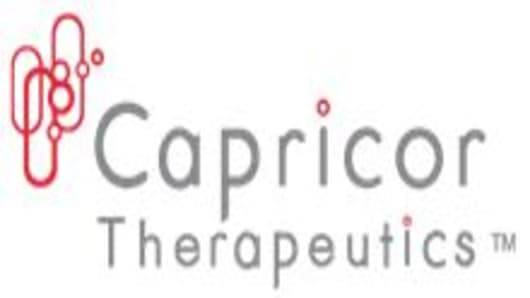Capricor and CureDuchenne Hold Webinar on DMD-related Heart Disease
Written by |

 California-based biotech company, Capricor Therapeutics, Inc., recently held a webinar on Wednesday, January 21, 2015 on the company’s latest research and development updates on addressing the largely unmet clinical needs of Duchenne muscular dystrophy (DMD) and related heart disease, which is known to be the most common cause of mortality among patients with DMD.
California-based biotech company, Capricor Therapeutics, Inc., recently held a webinar on Wednesday, January 21, 2015 on the company’s latest research and development updates on addressing the largely unmet clinical needs of Duchenne muscular dystrophy (DMD) and related heart disease, which is known to be the most common cause of mortality among patients with DMD.
The online discussions were conducted by the Company’s Chief Executive Officer, Dr. Linda Marbán; Chief Scientific Advisory Board Chairman and the Director of the Cedars-Sinai Heart Institute, Eduardo Marbán, M.D., Ph.D.; and the Co-Founder and Chief Executive Officer of national not-for-profit organization, CureDuchenne, Debra Miller.
This webinar follows Capricorn’s presentation of encouraging preclinical findings on cardiosphere-derived cells (CDCs) for DMD-related cardiomyopathy during the Annual American Heart Association Scientific Sessions. CureDuchenne has committed to funding the Company’s planned research initiatives for DMD.
[adrotate group=”3″]
At present, Capricor has 2 flagship pipeline products: CAP-1002, an allogeneic, off-the-shelf “ready to use” cell therapy derived from donor heart tissue and infused directly into a patient’s coronary artery during a catheterization procedure, and Cenderitide, originally designed by the Mayo Clinic as a pioneering dual natriuretic peptide receptor agonist, designed as an outpatient therapy to be delivered continuously using a validated subcutaneous infusion pump for up to 90 days (the “post-acute” period) following a hospital admission for Acute Decompensated Heart Failure (ADHF). To learn more visit www.capricor.com.
In other news on DMD treatments, a study led by a cardiologist at The Ohio State University Wexner Medical Center found that administering medication for heart failure as early as possible can help slow progressive decline in cardiac function, commonly observed in young boys diagnosed with Duchenne muscular dystrophy (DMD). The researchers carried out a clinical trial testing a combined treatment of eplerenone and either an ACE inhibitor or an angiotensin receptor blocker (ARB) in decreasing the rate of cardiac failure in boys with DMD. The study was funded by the Parent Project Muscular Dystrophy, the National Center for Advancing Translational Sciences and the National Institutes of Health. It was also inspired by Ryan Ballou, a 26-year-old DMD patient from Pittsburgh, who created fundraiser BallouSkies together with his father.





